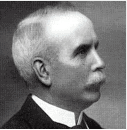The bolt from the blue
The phone call, when it came, was memorable. Over a crackly line, with all sorts of strange delays and clicks, came a panicky voice…
“Pliss, Help! Your softworr is, how say, flaked, err…flooked. Iss noggod. It helps me please. I used his software of the sheet of payment and I do not encase any more long payment of the employees his software is broken, they starts agitated.”
I was puzzled. The voice was strained. I could have sworn I could hear raised voices in the background followed by breaking glass and a scream. I doubt if this sort of catastrophic failure happens to many software developers. It was something that, I have to admit, was entirely the consequence of my own actions.
I’ll have to explain…
The Gap in the Market
The independent software publisher survives by reacting quickly to small gaps in the market. It is always a happy time when one manages the trick. At the dawn of the PC, there was a battle between many manufacturers of electronics to design the definitive personal computer, and thereby dominate the fledgling market in affordable computers. Each machine that came out was different. Usually they had a primitive but serviceable BASIC interpreter, generally in ROM, and you got the ubiquitous disk operating system, CP/M. Each computer would be able to run Microsoft Basic and usually provided hooks into its hardware via extensions to BASIC. Manufacturer-after-manufacturer would release beautifully-designed computers onto the market. Each had only one minor flaw: no useful software.
Such is the overriding power of marketing that many computers were sold without any useful applications that could run on them. Even simple spreadsheets such as VisiCalc and Multiplan were unknown. However, it was usually not long before these vast multinational companies, big in Hi-Fi music players but innocent of any knowledge of computers, were casting about for some expertise.
It was at this point that my company would come to the rescue. After admiring the beauty of the sculptured desk-jewellery that was shipped to us from the panicking company, our first job was to crack the format of the disk so that we could get industry-standard software onto the machine. Then we would install Wordstar, the only serviceable word-processing software that existed at that time. We’d then write drivers for each of the small nucleus of applications that were on the market for doing standard office functions. We’d ship all that work to an associated company who would then sell the ‘ready-to-run’ software, in the correct format, to anyone stupid enough to buy the computers. We grew plump and prosperous on the work, and got to be on first-name terms with the UK directors of a number of Japanese and American multinational companies.
Once the initial crisis was over, we’d start to introduce special business management software, providing accounting and payroll functions to smallish businesses, each one ‘individually tailored’ to the computer in question. Well, that was what we’d tell everyone. Actually, the trick would be to maintain a complete range of accounting software packages, each written in the anodyne generic Microsoft Basic. It assumed nothing of the hardware it had to run on beyond the ability to emulate a teletype. This was the same Basic that Microsoft would license to these hapless and inexperienced companies, but with hooks into the graphics and other I/O. This generic software was maintained by a small team of programmers. Whenever a new computer was launched in the industry, we would be up most nights converting it into a ‘custom’ version for the machine, complete with graphical, sound and I/O features ‘specially adapted’ for that particular piece of hapless hardware.
This always went down big with the marketing arm of the manufacturers. Even if the computer bombed in the marketplace, we would still rake in a healthy amount of cash by consulting with them until, eventually, a wider sanity prevailed and they would extract them selves from the PC market, licking their wounds.
The only major downside with this enterprise was the fact that the BASIC was interpreted, and Microsoft Basic had no effective encryption. Software had to be provided to the customer in source. We considered drafting a legal document, stating that whenever you hit the BREAK key, and the source scrolled out across the screen, you had to promise to close your eyes, put a paper bag over your head, or turn your back on the computer. However, we doubted whether we’d be able to enforce it.
Instead, we resorted to a number of tricks to make sure that the source of all our prosperity was not copied. It was vital that nobody else realised how easy it was to make a killing from the battle for supremacy amongst the PC manufacturers.
The code was therefore full of tricks, traps, and unpleasantness to thwart even the most determined software pirate. It might be my vindictive nature, but I made sure that these tricks were extremely subtle and difficult to detect. Only the core team that maintained the code, and I, knew them all.
Now, back to our panicking caller…
The Elbonian Payroll package
In broken English, a lady from a country we’ll call “Elbonia” was pleading for help. She had one of our payroll packages and it had stopped working. We’d never sold any software to Elbonia, and had no knowledge of the labyrinthine laws governing payroll in that country. She seemed reproachful that we should have written software that had failed, and was in an awful predicament as she couldn’t use the system to pay the staff. A quick check revealed that it was, indeed, our software. It had been altered, but it still had our copyright message and contact details in place (just try removing them! Hah!). We were completely bemused but, eventually, we took pity on her predicament and gave her enough information to enable her to bypass the copy-protection device that had kicked in, in order to do that particular payroll run.
As soon as the call ended, one of us had to rush out to buy an atlas to find out where Elbonia was. As it turned out, this was just the first of a flood of phone-calls from this small South American country, all of them characterized by the same atmosphere of barely suppressed mayhem and panic. They were generally fielded by others, as I was trying to find out what had happened.
I quickly managed to establish that the marketing director of the local office of the computer’s manufacturer in Elbonia had naively got in cahoots with a local Elbonian software house to ‘alter’ our payroll software to meet local needs and had ‘forgotten’ to ask our permission. How unfortunate.
Elbonians had taken to the computer with a gusto unmatched by its reception in Britain. I suspect that the marketing director had also ‘forgotten’ most of the Ten Commandments in his commercial zeal to sell the computer to Elbonian commerce. Sadly, they walked right into one of our “traps”: a time-bomb that misled the pirate into believing that he had successfully filched the code, only for it to subsequently “blow up” in their faces.
The software had been adopted with such zeal that the time-bomb, one of my best, kicked in more or less simultaneously across many companies throughout the country. On this particular Friday, a lot of Elbonians didn’t get paid and they were understandably miffed. It was causing disturbance on a national scale.
An agreeeable cure for a Senior Moment
My meeting with the boss of the vast international manufacturing company, in an exclusive Sushi restaurant, near Covent Garden, was a most agreeable event. He was a cultured, urbane Japanese; a Harvard graduate. We bonded instantly. He was in excellent spirits, despite the jet-lag from his sudden trip to London.
“The sudden amnesia of our employee in Elbonia was a sad and unfortunate event,” he confided. “He has, sadly, had to leave the company on medical grounds. We are left with an unfortunate problem that requires us to come to you in the hope of your assistance.”
“The memory can play terrible tricks, as you are only too aware.” I replied. “Unfortunately, none of us can quite remember where the anti-pirate device is located.”
He nodded vigorously. “I quite see the problem, but we Japanese have an ancient remedy that is guaranteed to stimulate the failing memory, which I can now offer you.” He produced a cheque-book, and wrote out a cheque for an amount so large that even now the thought of it makes me quiver with excitement. “My God, it’s worked! I’ve suddenly remembered where it is! Excuse me whilst I make a phone call…”
I soon returned to the table, after contacting the programming team to authorise them to release the patch to Elbonia, and to let them know that their annual bonus would include a new car.
The rest of the evening was rather a blur, but gave me a new respect for the ability of senior executives of multinational companies to consume alcohol and get thrown out of Soho Clubs. It was a revelation.
Suddenly, the threat to the political stability of Elbonia was averted and the computer was left to pursue its mercurial fortunes. For us, it was soon time to look for a new gap in the market, that brief but profitable opportunity, as the industry re-invented itself once again





Load comments